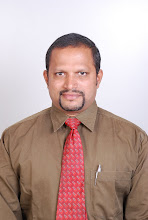
Sathya Sai Baba (Telugu: సత్య సాయిబాబా [sʌtjə sɑːɪ bɑːbɑː]; Kannada: ಸತ್ಯ ಸಾಯಿ ಬಾಬ; Tamil: சத்ய சாயி பாபா; Malayalam: സത്യസായിബാബ;Sanskrit: सत्य साईबाबा), born as Sathyanarayana Raju, on 23 November 1926,[1] is a popular Indian guru, spiritual figure and educator.[2] He is described by his devotees as an avatar, godman,[3] spiritual teacher and miracle worker.[1][4][5][6][7] The apparent materializing of vibuthi (holy ash) and small objects such as rings, necklaces and watches by Sathya Sai Baba has been a source of both fame and controversy – skeptics consider these simple conjuring tricks, while devotees consider them evidence of divinity. Sathya Sai Baba has claimed to be the reincarnation of the great spiritual guru, Sai Baba of Shirdi, whose teachings were an eclectic blend of Hindu and Muslim beliefs.
Sathya Sai Baba and his organizations support a variety of free educational institutions, hospitals, and other charitable works in India and abroad. The number of active Sathya Sai Baba adherents was estimated in 1999 to be around 6 million, although followers' estimations are far higher. Since there are no formal ties of membership, the actual figure may never be known.The Sathya Sai Organization reports that there are an estimated 1,200 Sathya Sai Baba Centers in 114 countries worldwide. In India itself, Sai Baba draws followers from predominantly upper-middle-class, urban sections of society who have the "most wealth, education and exposure to Western ideas."[13] A cultural icon in his home country, Sai Baba has attracted presidents and prime ministers from India and beyond who have become his devotees; in 2002, he claimed to have followers in 178 countries.
Sathyanarayana Raju was born to Eswaramma and Peddavenkama Raju Ratnakaram[16] in the village of Puttaparthi, Andhra Pradesh, India.Almost everything known about his life stems from the hagiography that has grown around him, the presentation of narratives that hold special meaning to his devotees and are considered evidence of his divine nature.
His birth, which his mother Eswaramma asserted was by miraculous conception, was also said to be heralded by miracles. As a child, he was described as "unusually intelligent" and charitable He was exceptionally talented in drama, music, dance and writing, and was an avid composer of poems and plays.He was said to be capable of materialising objects such as food and sweets out of thin air.
On 8 March 1940, while living with his elder brother Seshama Raju in Uravakonda, Sathya was apparently stung by a scorpion. He lost consciousness for several hours. Within the next few days there was a noticeable change in Sathya's behavior. There were "symptoms of laughing and weeping, eloquence and silence.He began to sing Sanskrit verses, a language of which he had no prior knowledge.Doctors believed his behavior to be hysteria His parents brought Sathya home to Puttaparthi.Concerned, they took him to many priests, "doctors" and exorcists.
On 23 May 1940, Sathya called household members and materialized sugar candy and other items. His father became furious upon seeing this, thinking his son was bewitched. He took a stick and asked him who he was. To this Sathya announced calmly and firmly "I am Sai Baba," a reference to Sai Baba of Shirdi. He proclaimed himself to be a reincarnation of Sai Baba of Shirdi—a saint who became famous in the late nineteenth and early twentieth centuries in Maharashtra, and who had died eight years before Sathya was born.
Later that year, Sathya Sai Baba declared that he had no worldly relationship with anyone, and around this time, devotees began to gather to him. In 1940, Sathya Sai Baba began to travel to Madras and elsewhere in South India and soon had a large regional following.
In 1944, a mandir (temple) for Sathya Sai Baba's devotees was built near the village. It is now referred to as the old mandir.The construction of Prashanthi Nilayam, the current ashram, began in 1948 and after 2 years, was completed in 1950.In 1957 Sathya Sai Baba went on a North Indian temple tour. In 1954, Sathya Sai Baba established a small free General Hospital in the village of Puttaparthi.






No comments:
Post a Comment